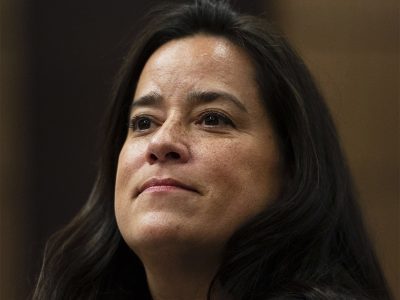By Tyrone Burke
Photos by Chris Roussakis
In the future, the most successful companies will be green. Carbon taxes will make heavy polluters less profitable, and consumer preferences for greener products will shift the way that people spend their money.
“Many institutional investors recognize that the better performing firms of the future will be those that are reducing their exposure to risks associated with climate change,” says Patrick Callery, assistant professor of strategic management at the Carleton University’s Sprott School of Business.

Patrick Callery
But it isn’t as easy as it sounds for pension fund managers and other investors to figure out which companies are making meaningful changes. There’s an absence of good information on emissions performance from regulatory bodies. CDP – formerly the Carbon Disclosure Project – is a not-for-profit organization that seeks to fill that gap. It collects environmental impact data like greenhouse gas emissions and it has broad participation from major global firms. It’s the best source of information that institutional investors have, but it’s far from perfect.
“The data CDP collects is embedded into algorithms used by investors to identify responsible firms,” says Callery, whose research examines corporate sustainability strategies.
“There’s a tangible benefit for a firm to say it is performing better than it really is. If a company’s stock is included on a sustainable stock index, it increases demand. That drives the price higher. Firms know how to make their scores better and because this isn’t subject to audit at the same level of rigour as a financial disclosure, there is an opportunity to gain by providing misleading information. And it’s difficult to detect, so there is very little consequence for doing so.”

Applying Pressure to Improve Environmental Performance
Still, initiatives like CDP serve an important purpose. They are a lever that can apply pressure to improve environmental performance, and also shift investor and public expectations over corporate action in addressing environmental issues. Public pressure – and perception – will be critical to achieving a more sustainable economy.
“There’s been a proliferation of green products that put an environmental spin on existing products — think cleaning products, recycled clothing and organic cotton,” says Callery.
“These have rightly been criticized for not making much of a dent in the grand scheme of things. Part of the reason they don’t have much impact is scale. These products cater to a niche market, but they gradually change consumer perceptions of what is green and what is not, whether it is important be green, and whether consumers can be green and have a better overall customer experience. That’s causing a slow but subtle shift in consumer culture.
“As an optimist, you have to expect that eventually those changes will snowball — that we’ll hit a tipping point where you won’t only have niche products serving niche customers, but mainstream companies scrambling to fill a need that has really taken off.”

Sustainability Strategies for an Intractable Problem
And action by companies will be critical to achieving real gains. Right now, many produce niche green products, but continue to produce their more heavily polluting predecessors.
“We all know that SUVs are comparatively bad for the environment and the major automakers say they’re only meeting consumer demand,” says Callery.
“Yet they market these products aggressively to create that demand. Firms need to take a stand and say that there is a better way. If you look at where things are going, you don’t want to buy a SUV right now because you’re going to own it for 10 years, and it will be expensive to operate with carbon taxes coming in. ”
Changing rules and regulations so that they reflect the real costs of pollution will be critical to achieving a sustainable economy. Ultimately, it falls to governments to make those rules, but companies that stand to benefit can make a difference by lobbying governments to make regulatory changes that will benefit their business over competitors that are choosing to defer action.”
“Climate change is seen as an intractable problem,” says Callery.
“It requires fundamental change on all levels of society. Companies have a big part to play in the shift to a greener economy – they don’t just have to be dragged kicking and screaming, they can be proactive in the transition.”
Thursday, February 6, 2020 in Environment and Sustainability, Sprott School of Business
Share: Twitter, Facebook



